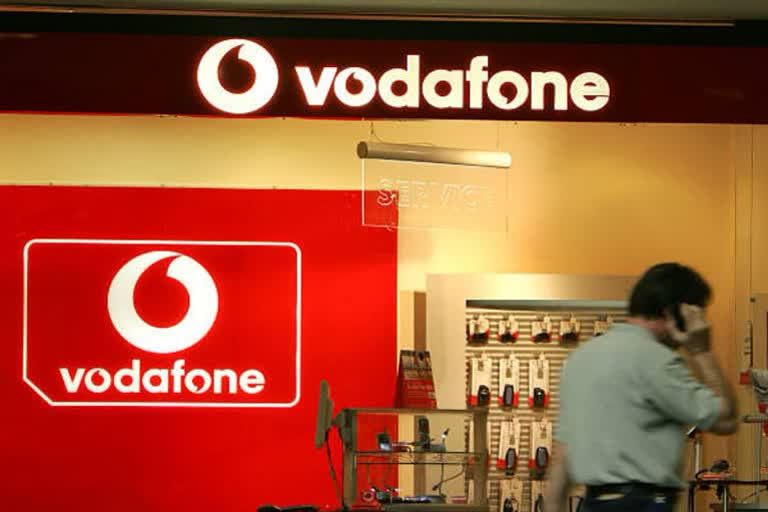New Delhi: After losing the Rs 20,000 crore tax demand case against Vodafone Holdings BV in an international arbitration tribunal, India has two choices before it - the country could allow the matter to rest or it can appeal against the award at the High Court of Singapore, said lawyer Anuradha Dutt who represented Vodafone at the international arbitration tribunal.
In an exclusive interaction with ETV Bharat, Anuradha Dutt, a senior partner with DMD Advocates, said the tribunal held that the Indian government violated the principle of fair and equitable treatment guaranteed under the India-Netherlands Bilateral Investment Protection Agreement (BIPA).
Advocate Anuradha Dutt said India has two choices, either it can accept the award and put a coitus to this issue or it can file an appeal in Singapore High Court.
However, even the Singapore High Court may not have the last word as an aggrieved party can further challenge the order in the Court of Appeals in Singapore.
"They have two remedies available to them... High Court of Singapore, and then there is the Court of Appeals in Singapore and thereafter there is no option for the government," she said while explaining the forums available against the award of the tribunal.
No time-bound hearing
Anuradha Dutt, who led the team of DMD Associates on behalf of Vodafone Holdings BV, says though there is no provision of time bound hearing in such cases as Courts have their own schedule but Singapore Court is faster than other courts.
Read: Vodafone wins tax case against India
13-year old tax dispute
In 2007, the income tax department raised a tax demand of Rs 7,900 crores on Vodafone-Hutch deal. The demand was challenged by Vodafone in Bombay High Court and then the Supreme Court of India. The Supreme Court ruled in favour of Vodafone which prompted the then UPA government to amend the tax laws with retrospective effect to capture this kind of transactions for taxation purposes.
After a nearly six-year long litigation process outside the country, the Government of India lost the case to Vodafone.
What is India's case against Vodafone
In February 2007, Vodafone International Holding (a Netherland Company) purchased 100% shares of CGP Investments (Holding) Ltd (CGP Ltd) (a Cayman Islands Company) for $11.1 billion from Hutchison Telecommunications International Limited.
Read: Vodafone Idea is now Vi: What changes for existing customers?
According to finance ministry sources, CGP Ltd indirectly controlled 67% of Hutchison Essar Limited (HEL Ltd), an Indian company. Through this acquisition, Vodafone got control over an Indian company -Hutchison Essar Limited.
It was argued by the Vodafone that this transaction is not liable for tax in India as the asset transferred, the shares of CGP Ltd, was the shares of the Cayman Island Company and as such it was not the shares of an Indian company.
The Income Tax Department felt that such indirect transfer was designed only to avoid capital gains tax in India, and the department raised a demand of around Rs 7,900 crore by holding that the said transfer of shares of CGP Ltd involves indirect transfer of Indian assets, the shares of an Indian company (HEL Ltd).
Assessment order challenged in Courts
Vodafone challenged the order before the Bombay High Court, which upheld the tax demand. The company challenged the order in the Supreme Court. In 2012, the top court of the country held that such indirect transfer of assets was not taxable under the existing provisions of the Income Tax Act.
Read: VIL board approves Rs 25,000 crore fund-raising plan
UPA retrospectively amended tax laws
According to finance ministry sources, in order to stop the abuse and plug loophole of such indirect transfer of Indian assets, the Finance Act of 2012 made an amendment to specifically clarify that indirect transfer of assets located in India were always taxable under the Income Tax Act.
"With this amendment the demand on Vodafone was revived," a finance ministry source told ETV Bharat.
India's case collapses at the arbitration tribunal
At the international arbitral tribunal, Vodafone invoked the bilateral investment and protection treaty between India and Netherlands. Under the treaty, both the countries have given the choice of Arbitration.
"The treaty covers both, an investor and a state. It covers an Indian investor in Netherland or a Dutch investor in India, if they are aggrieved by the conduct of the state, they can file arbitration. India had given this option," the senior lawyer told ETV Bharat.
Read: TRAI issues show-cause notice to Vodafone Idea on priority plan, says offer misleading
In its award, the tribunal held that the respondent's (Government of India) conduct in respect of the imposition on the claimant (Vodafone) of an asserted liability to tax despite the Supreme Court Judgement is in breach of the guarantee of fair and equitable treatment laid down in Article 4(1) of the bilateral trade and investment protection agreement.
In 2015, India signed a trade and investment protection agreement (BIPA) with the Netherlands which was scrapped by Prime Minister Narendra Modi’s government in 2016.



